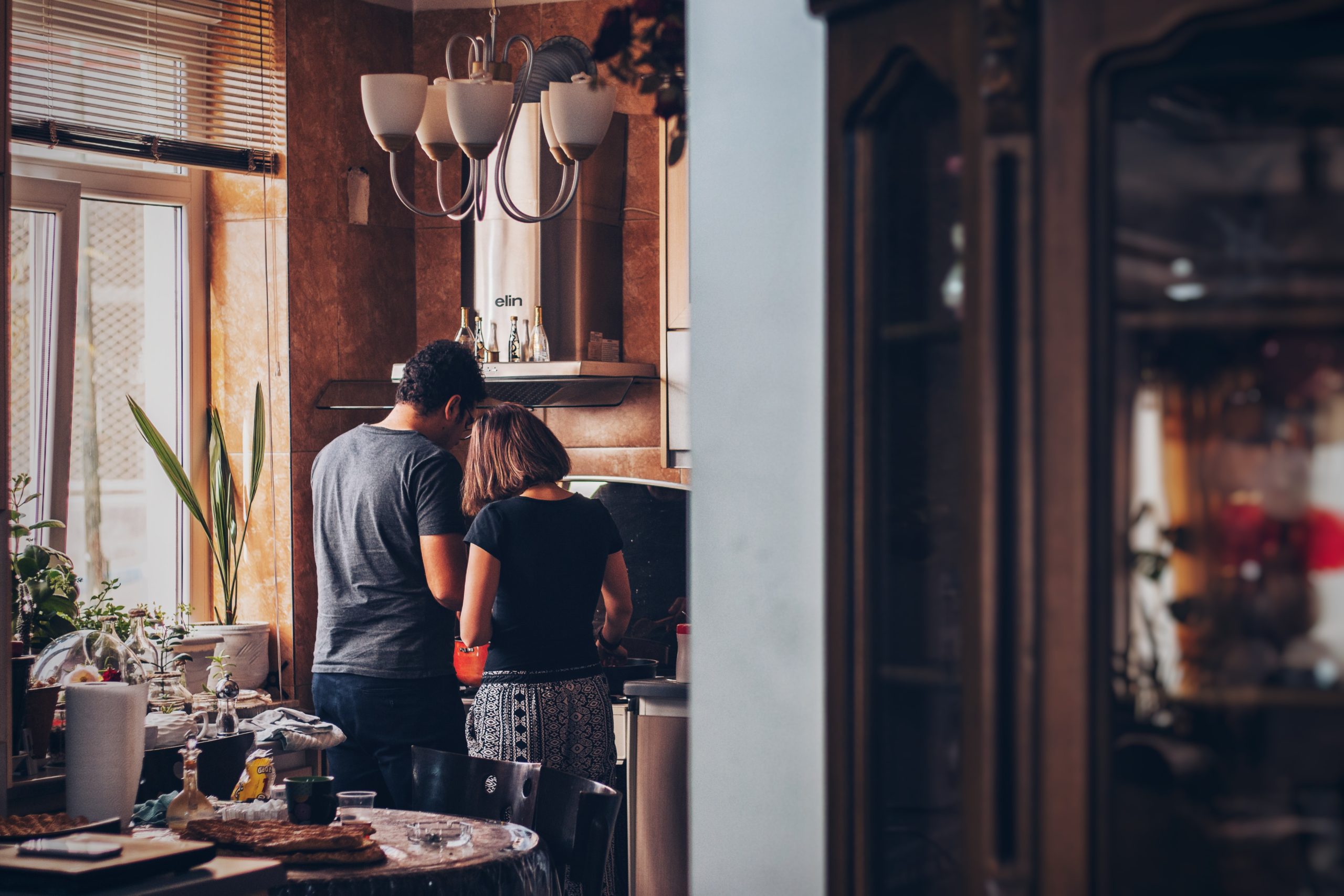
On Sheltering-In-Place With My Ex
I’m neither a hero nor a cautionary tale. I’m just a spider perched at one point in a moving web of circumstance. Moving one leg to one strand, one to another, keeping some kind of precarious balance.
In March, everything happened at once, like a handful of dice all being tossed on the table.
My ex — we’ll call him Sonnen — with whom my two youngest sons live, has traumatic brain damage, PTSD, and a host of other conditions, mostly related to his career in the military. In early 2020, he deteriorated. He could no longer take the children to school, and several times the boys had to call me to leave the city, cross the river, pick them up, and get them to class. Once Sonnen was so unresponsive, that, fearing a stroke, I drove him to the emergency room.
So that I could take care of the boys and Sonnen, I moved in with them. No sense removing the kids — imagine being 10 or 13 and thinking your dad might be dying alone, elsewhere, without you. They wanted to be with him, and I wanted it for them. To manage the multi-generation caregiving, I quit my day job to return to freelance writing.
I hadn’t been paying attention, but COVID-19 was gaining steam. The week after I gave notice at my day job, my best freelance client, an alternative weekly, stopped printing. Two weeks later, just one week after I moved in with the boys, their school closed — for two weeks, a month, then the rest of the semester. In early April, our state issued a shelter-in-place order. My client-hunting was limited to emailed conversations: “We were thinking of adding a freelance copywriter, but business is too slow lately, sorry.”
So there we were. Two boys, Sonnen, and me inside. The Tennessee River Valley, oddly silent, outside.
What I forgot about living with Sonnen was the silence.
The first years — 14 years ago now — I dealt with his silence by sitting hopefully beside him, begging to know what I’d done wrong, begging him to forgive me, begging him to speak. Once, a couple of months after we got married, I lay at his feet all night, hoping for even a crumb of a reaction, as he stared stony-faced at a computer screen.
Toward the middle of our relationship, I’d try to provoke a response, even a fight. I’d rather be hit, I thought, than ignored for hours or days in a row.
In the last years, I found ways to get out of the house. Night classes. Overtime. I filled the silence, at last, with the sounds of my own life.
I liked what I heard. I liked my own presence. But with me present, there was no room for Sonnen.
Now, sheltering in place together during the epidemic, I’m learning to see Sonnen’s silence in the context of trauma and disability. It’s useful that we have a more complete diagnosis for Sonnen now — something we didn’t have early in our marriage. There may be treatments for PTSD, but there’s really nothing for multiple concussions.
I’m learning to be patient and let him alone, but, most of all, I’m learning not to exhaust myself by pouring more and more of me into an empty space I just can’t fill.
I’m learning how to use compartmentalization effectively —it’s not a great strategy for life, but it’s an effective tool for caregiving for someone whose disability is also debilitating for anyone who gets too close to them. I’m learning to go about my life with his silence close by, to run on a parallel track, to exist and let him exist.
Often, I draw on disability studies to help me find perspective into Sonnen’s life. In one study, about half of family caregivers of people with disabilities reported being verbally or physically abused by the person they cared for. Disability and disempowerment lead to frustration; trauma is famously intergenerational.
I’m not sure where this ends. Social distancing, closing families up together, doesn’t help, though it does put us eyeball-to-eyeball with challenges our society needs to address, and soon. The burdens on caregivers. The scarcity of resources. A lot of us are confronting those more squarely than ever before.
I don’t want to hold myself up as an example of what not to do — yeah, move in with your ex, better turn in your feminist badge — or what to do. I’m neither a hero nor a cautionary tale. I’m just a spider perched at one point in a moving web of circumstance. Moving one leg to one strand, one to another, keeping some kind of precarious balance.
I promise I’ll do more work — both research and spiritual/emotional work — on this conundrum as the days play out. One thing I have learned: If I step away from silence or rage, they change. I can step out on the back patio and water my tomatoes. I can open a book.
With more sleep and less stress, Sonnen is coming back to himself a bit. He’s still disoriented sometimes, but there are days when he’s there, a little slow to respond, but laughing, cooking, reading books, digging holes for my plants, chasing the kids around.
Right now, for this moment, as we turn to the fifth night of our long-running Axis & Allies game (a welcome diversion for his restless, unquiet mind), I just want you to know that we’re here. We’re surviving. And if you read this, you’re surviving, too.
And I’m still, as literary theorist Gayatri Chakravorty Spivak wrote of fiction, “playing out the problem as solution.” Maybe, now, that’s the most we can do with our lives. Maybe that’s what I can learn from sheltering with my ex and our boys during the pandemic — how to look at life as a story we’re writing and rewriting, day after day.